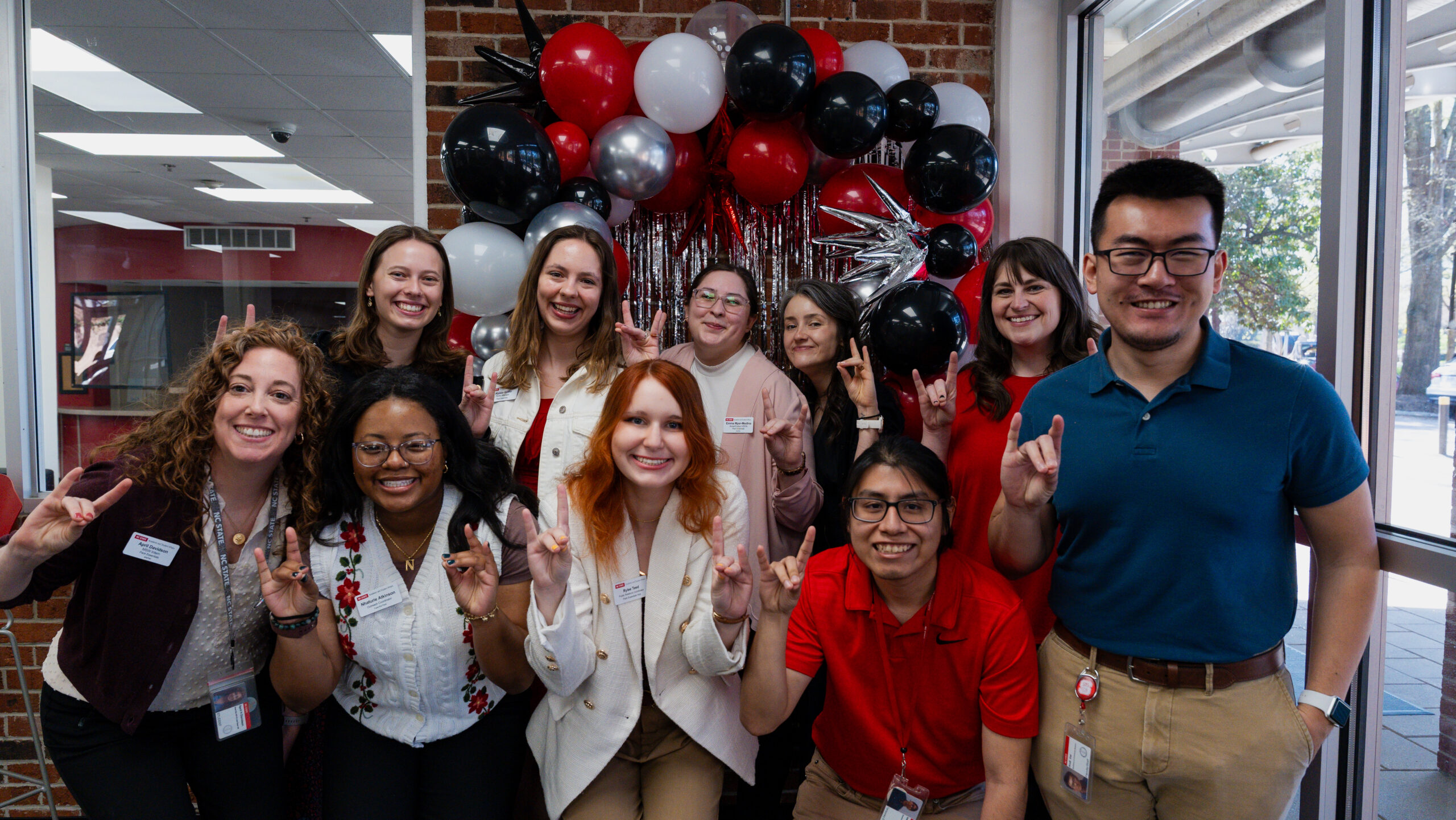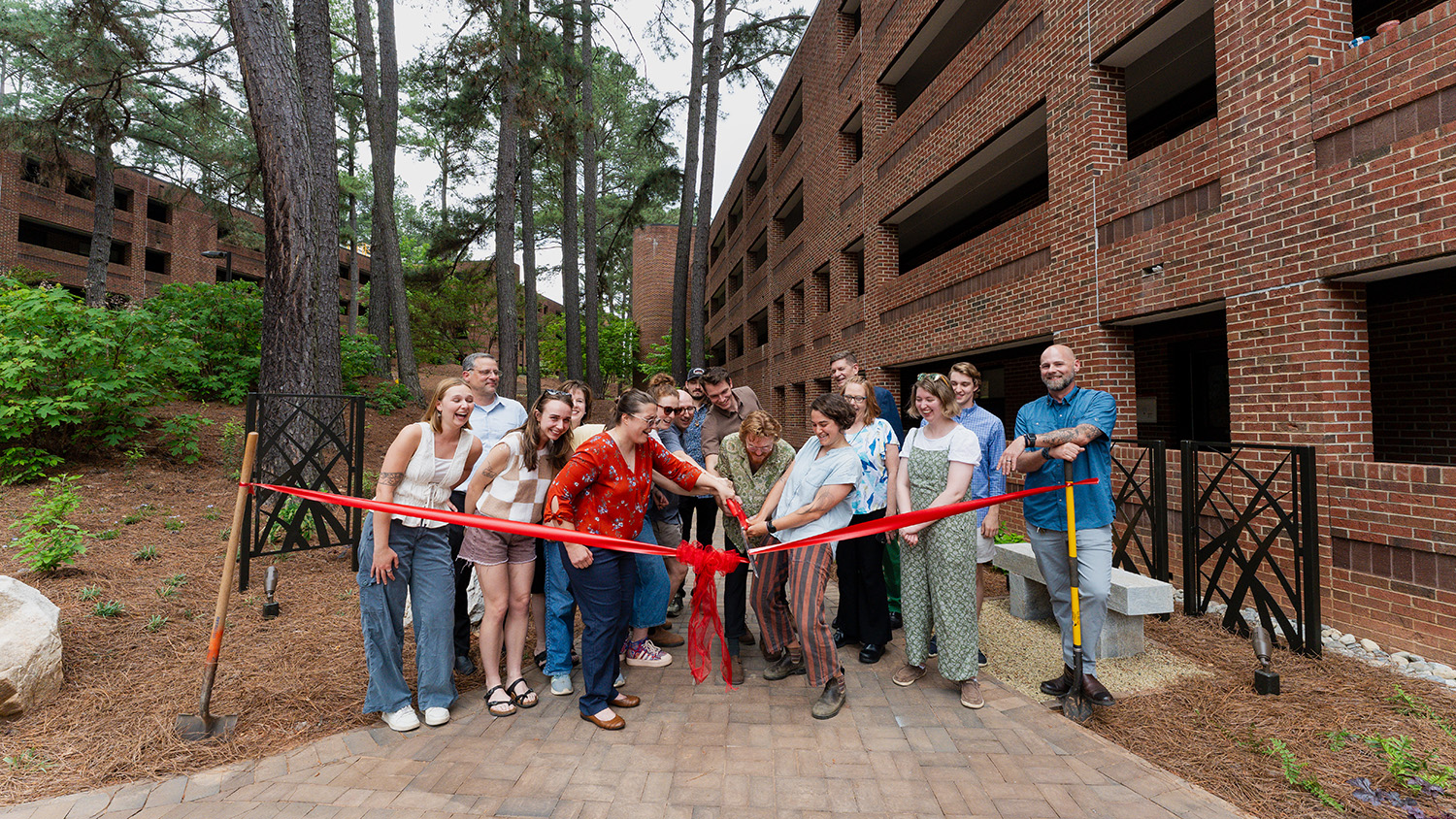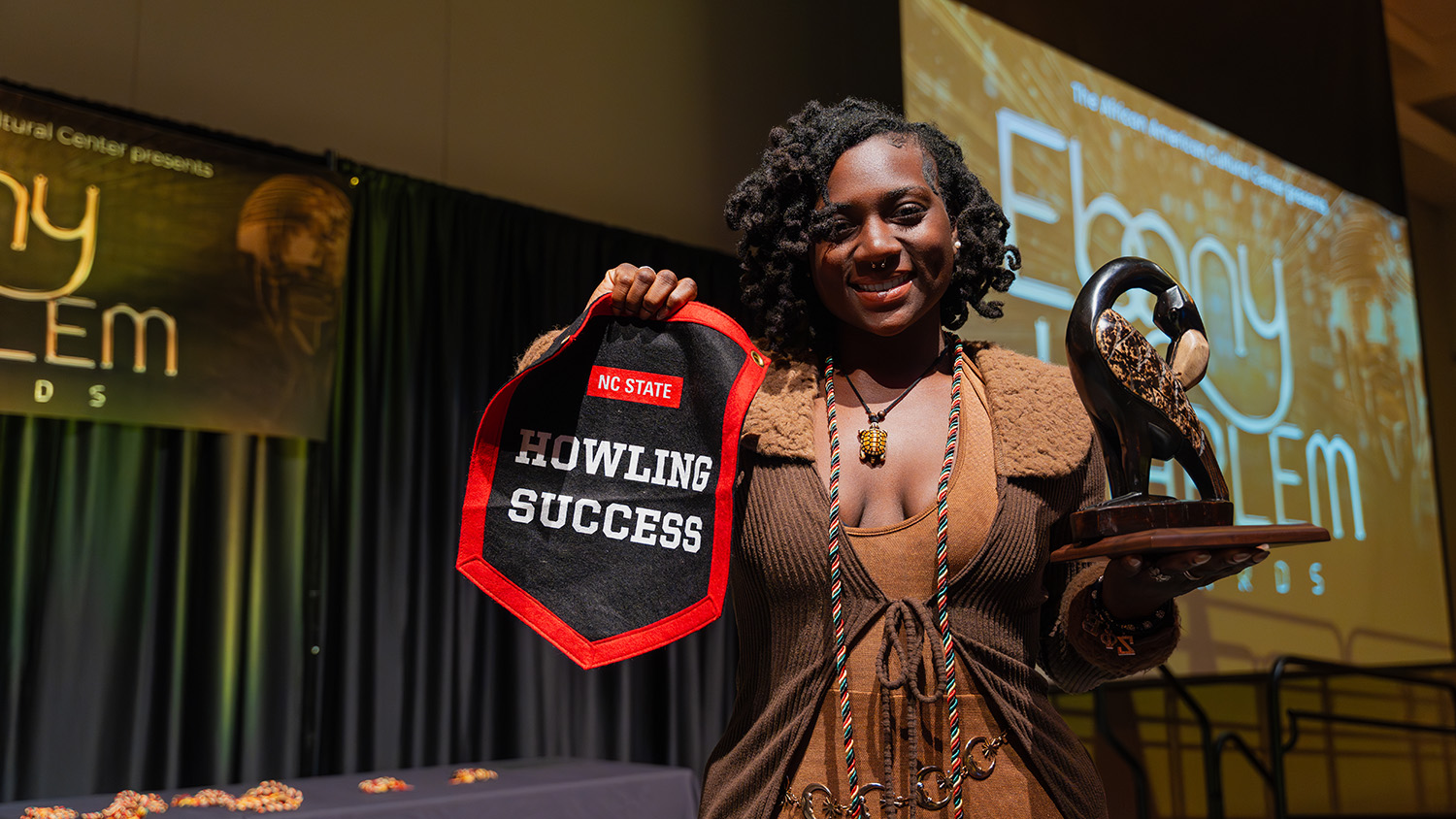NC State Air Force ROTC Cadets Learn New Skills at Summer Programs
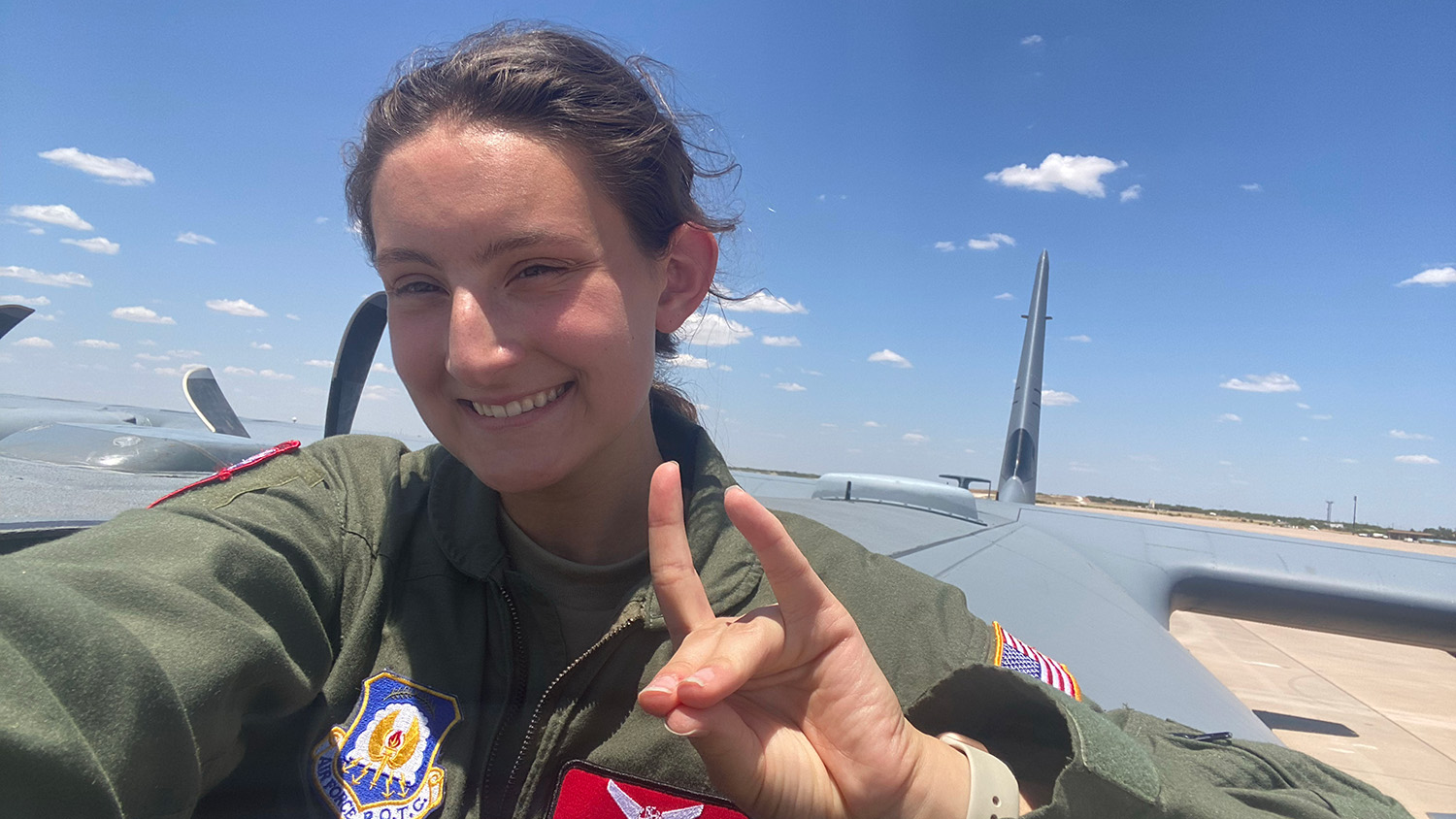
At NC State, Air Force ROTC cadets are encouraged to seek out and pursue opportunities to enhance their knowledge and skill sets, particularly in the form of summer Professional Development Training (PDT) programs.
This past summer, several cadets from ROTC Detachment 595 at NC State got a chance to participate in programs across the country, bringing back new knowledge and skills that will help them in their post college military careers.
“I think it’s special,” said Matthew Howard, a senior studying Computer Science who went to an Immersive Cyber Education course in Ohio. “We get to take classes, but even then, sometimes it’s kind of limited or not focused enough on specific topics you want to learn about. So getting to have these experiences allowed me to delve into those interests that I’ve really wanted to get into that some classes just might not be able to fulfill for me.”
Getting to have these experiences allowed me to delve into those interests that I’ve really wanted to get into.
NC State’s cadets had about a 92% selection rate in the PDTs they applied for, a significantly higher mark than the national average (67%).
“This shows that our cadets are outperforming other cadets across the nation and NC State has a stellar program to create opportunities for cadets to gain valuable experience and be competitive against their peers,” said Lieutenant Colonel Steven Jordan, the commanding officer of NC State’s detachment.
In addition to learning new skills and information, these programs also allowed NC State’s cadets to start building connections with military officers, cadets from the United States Air Force Academy and ROTC cadets from other colleges who they might work with one day.
“My favorite part was the networking,” said senior Julian Teague, a senior studying Civil Engineering who attended a civil engineering program in Florida. “I got to meet a lot of really cool people down there that had the same career interests as I did.”
At NC State, Jordan and the rest of the leadership cadre consistently push cadets to pursue these opportunities to better themselves.
“The fact that they push these opportunities out to us is awesome,” said John Tremper, who attended a glider flight training course in Colorado Springs. “I didn’t even know this was available to us, but our cadre are always pushing for us and giving us every opportunity we can get. I’m grateful for that.”
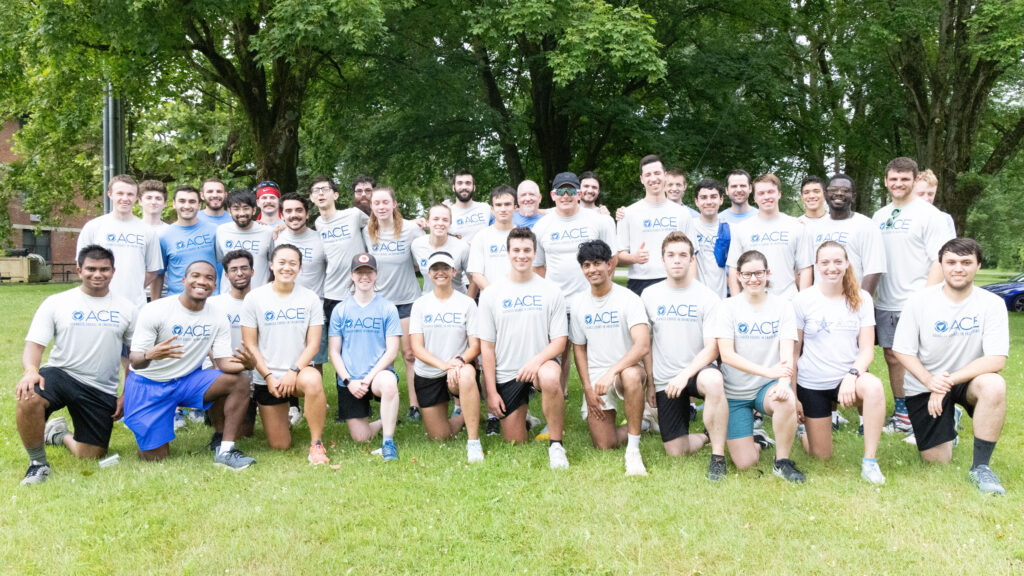
Aaron Bonner, Advanced Course in Engineering (ACE)
At the ACE program in Rome, New York, Aaron Bonner, a senior studying electrical engineering, took part in an immersive course in cyber warfare and leadership. He explained that the course taught cadets both how to infiltrate and steal data from an enemy network via techniques such as “red teaming,” or protecting their own networks from enemy hackers.
On the leadership side, the program featured guest speakers who spoke about historical events such as the Cuban Missile Crisis, Apollo 13 and the Challenger shuttle disaster. Bonner said that the program’s goal is to forge cyber leaders due to the increasing demand.
“I view it as a life-changing experience,” Bonner said. “When I got the email saying I got in, I still remember the exact situation. It was Dec. 23, I was brushing my teeth when I got the email. From there, it just turned out to be one of the most incredible experiences, both changing my outlook on leadership as well as exposing me to a whole new world.”
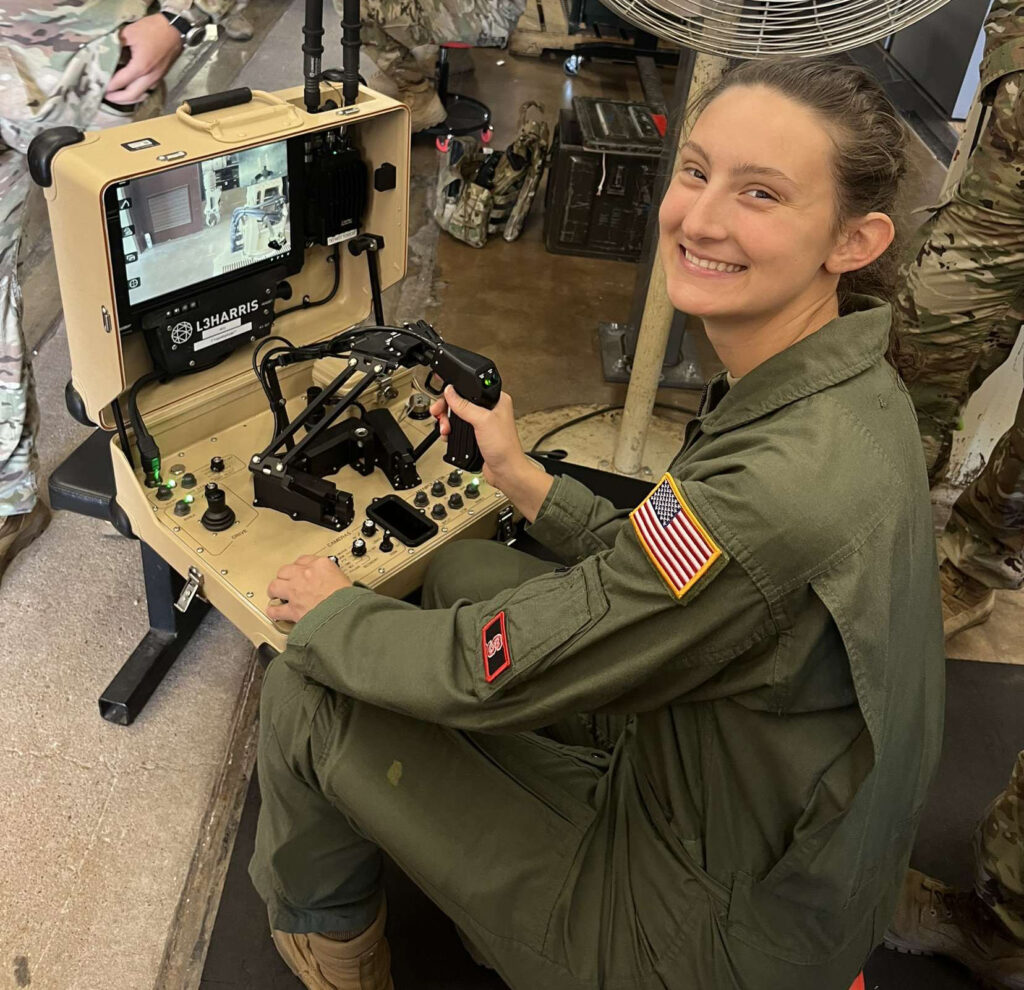
Rileigh Sevigny, Project Tuskegee 2.0
Rileigh Sevigny, a senior studying mechanical engineering, had to pivot from her original plan of seeing Projet Red Flag, a wargaming scenario, when housing fell through.
However, at Project Tuskegee 2.0 at Dyess Air Force Base in Abilene, Texas, sponsored by Global Strike Command, Sevigny got a chance to see B-1 bombers up close, and every part of the mission from the maintenance of the jets to building engines and fabricating new parts.
Sevigny called it a very immersive experience, and said cadets also got to spend a day with security forces and bomb squads.
“I think it was incredibly beneficial to see how the bigger air force operates outside of our cadet bubble and to see more of the enlisted side of things,” Sevigny said. “We have a lot of officer shadow programs, but this allowed us to experience a side of the air force that we don’t really get in ROTC.”
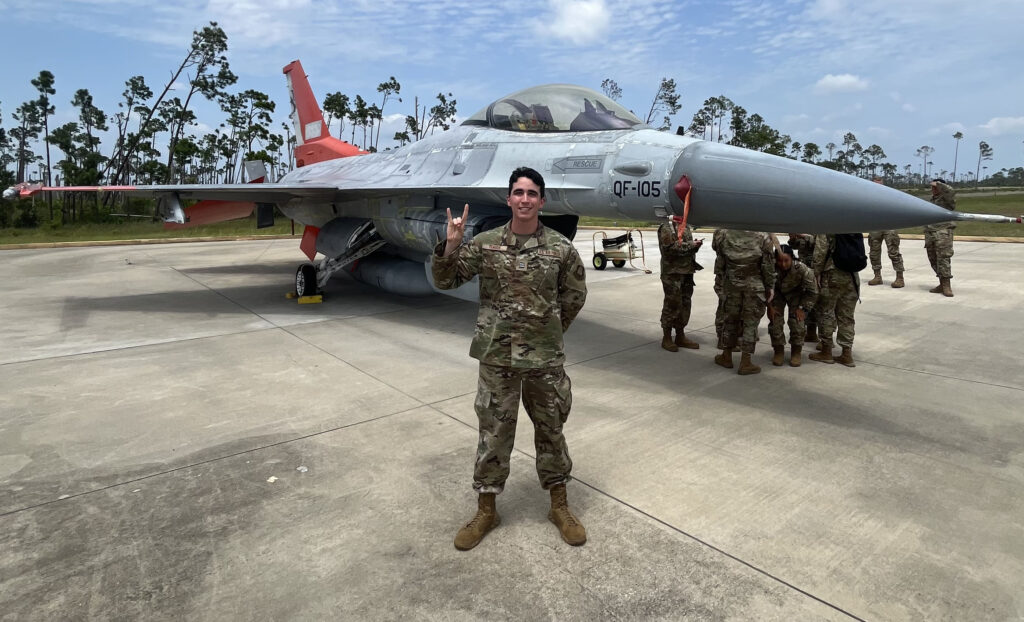
Julian Teague, Silver Flag
Teague found a perfect fit for his civil engineering career goals at Silver Flag, hosted at Tyndall Air Force Base in Florida.
He explained that the Silver Flag event is a showing of what cadets can expect as a civil engineer in the Air Force, including different units they might work with, jobs such as pavement design, soil and computer design of buildings.
The event includes officers and enlisted personnel from around the country and serves as a training event to assess their preparation level for different situations.
“Since that’s what I wanted to do, and then I get to go and see it, have some hands-on experience about what I’m going to be doing when I graduate, I found it very valuable,” Teague said. “It was kind of a morale boost, like this is what I’m going to be doing when I graduate, it seems cool and I like it. So now I’m excited for when I graduate and get to go in.”
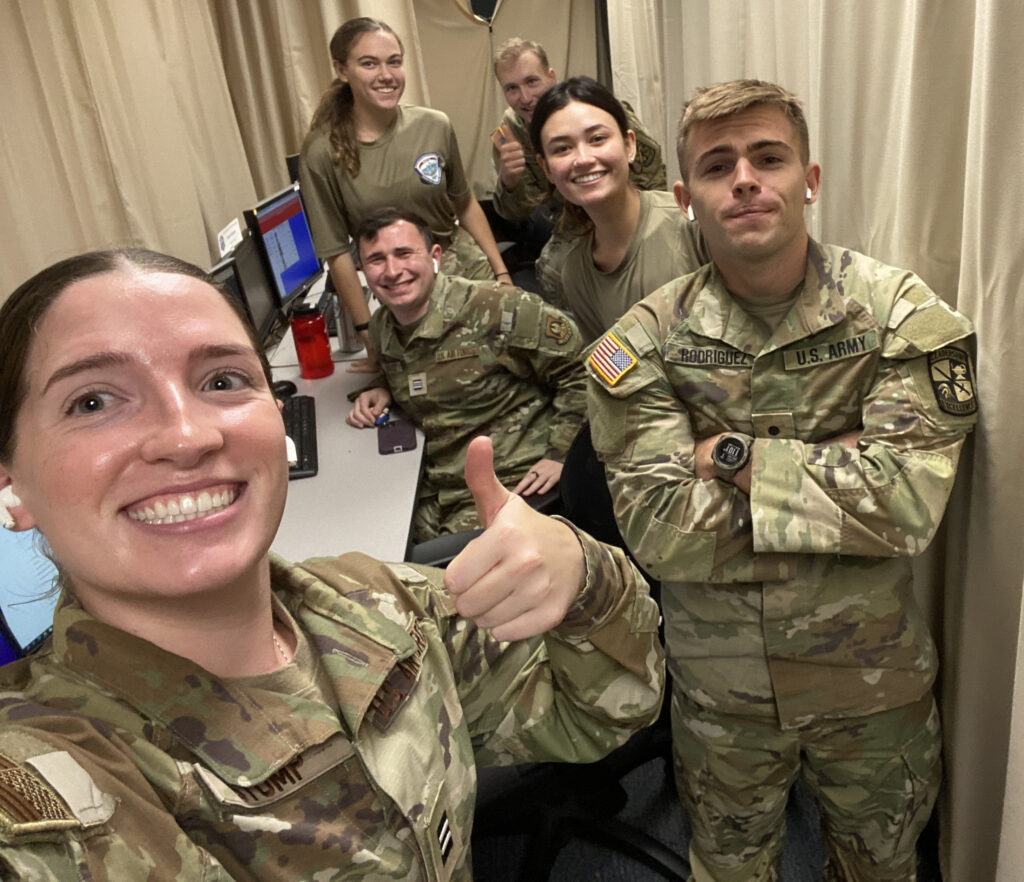
Matthew Howard, Immersive Cyber Education (ICE)
For Howard, the ICE program at Wright-Patterson Air Force Base in Ohio entailed a month of training on a variety of cyberspace topics, particularly different types of offensive and defensive hacking.
Howard explained that the program involved specific examples of programs used for certain types of cyber attacks, and strategies for defending specific networks against hacking. In addition to lectures on the subject, Howard said he and the other cadets in the program got a chance to participate in mini competitions of simulated cyber attacks.
“I’m actually going to be going into the cyberspace job field for the Air Force,” Howard said. “So for me, it was invaluable getting that actual experience even before our actual military training, just getting that exposure to it.”
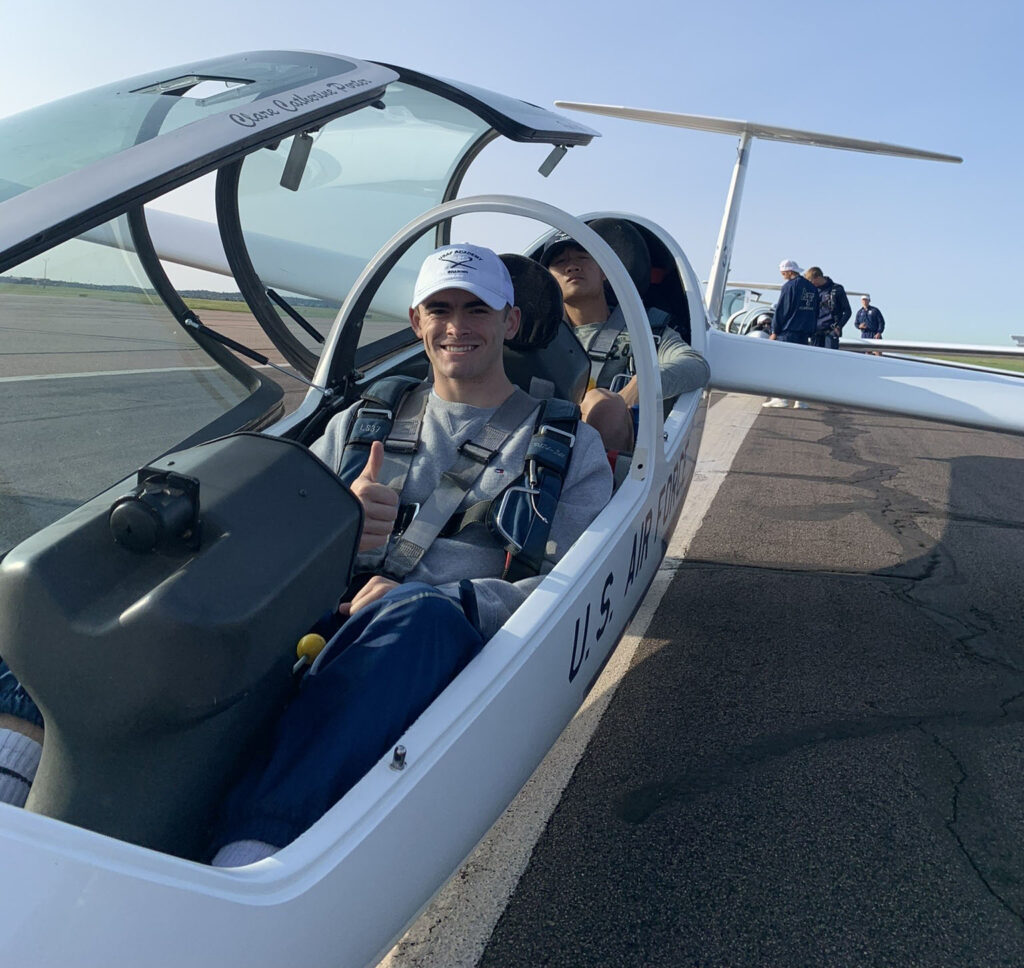
John Tremper, SOAR
At SOAR at the US Air Force Academy in Colorado Springs, John Tremper, a sophomore studying Aerospace Engineering, got an opportunity to learn to fly gliders.
Tremper said he enjoyed seeing the beautiful scenery of the Colorado mountains while learning to fly the gliders, building connections with other cadets from around the country and seeing his progress at the end of the course.
“My favorite part was at the end of it, I got to solo the glider,” Tremper said. “I’ve never soloed an aircraft before, and that feeling of ‘Hey, I can fly that plane all by myself after just three weeks of training,’ it was awesome. That first day, I couldn’t even take off, and then by the end of it, I was able to do everything.”
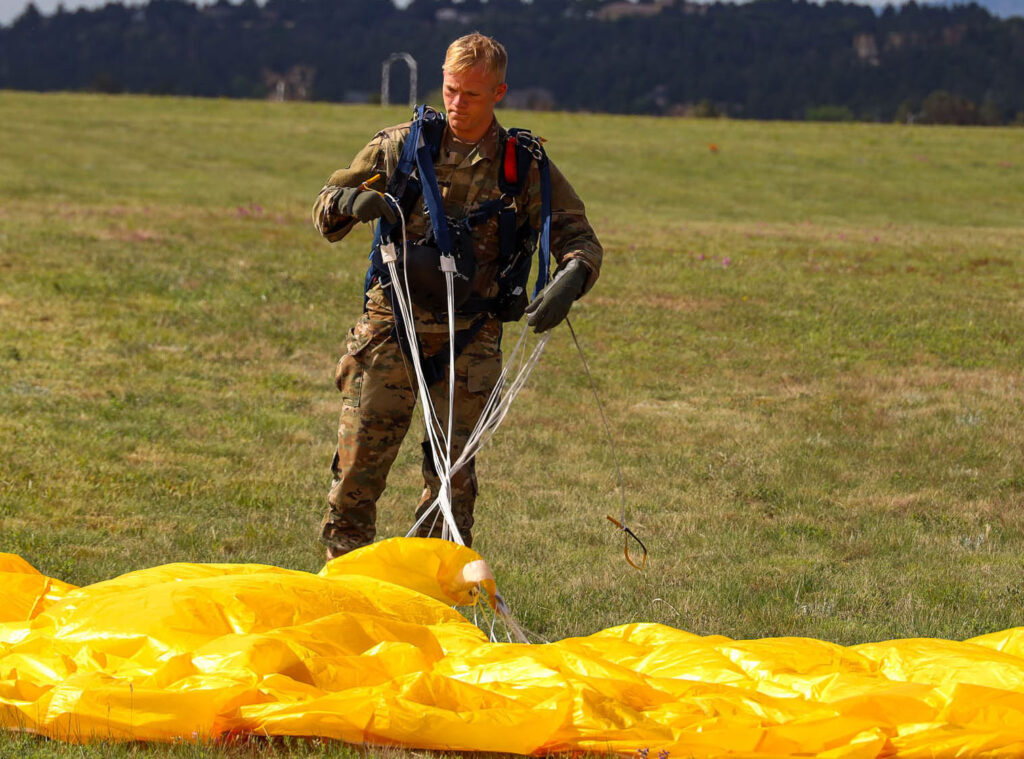
Cole Brewer, USAFA Freefall
At the US Air Force Academy in Colorado Springs, Cole Brewer, a senior studying Criminology, got to learn freefall skydiving.
Brewer explained that freefall skydiving differs from static line training because, rather than a parachute being pulled by the inertia of the plane, freefall skydivers freefall in the air for about 10 seconds before pulling their own chute.
The program involved learning how to keep one’s body as stable and aerodynamic as possible in the air while freefalling, including the use of a wind tunnel to simulate the scenario. They also learned what to do when something goes wrong when skydiving.
“It was basically a skydiving school, but with a lot of joint integration,” Brewer said. “I was able to network with a lot of USAFA cadets and also some active duty personnel and some officers that were doing the program. It’s a nice confidence-boosting experience that I went through. It was really cool.”
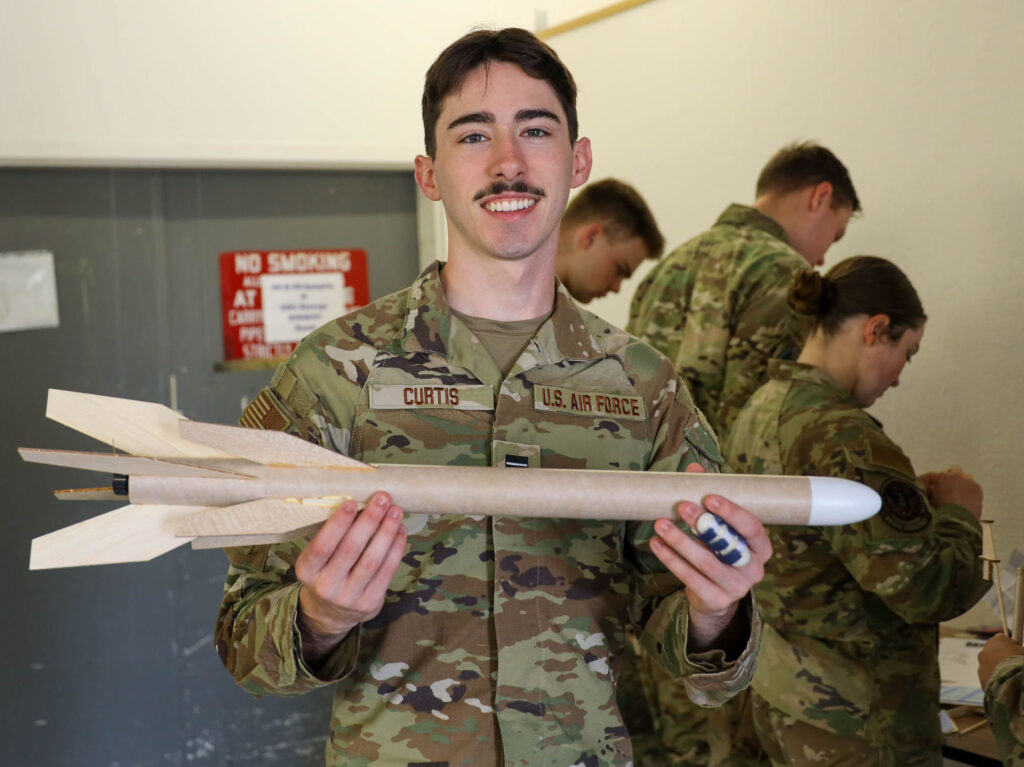
Dillon Curtis, Azimuth
As a child, Dillon Curtis, a senior studying Aerospace Engineering, enjoyed watching rocket launches in Cape Canaveral, Florida.
It’s only natural, then, that he gravitated towards a program run by the recently launched United States Space Force. At Azimuth at the US Air Force Academy in Colorado Springs, Curtis and his fellow cadets from around the country got a chance to “learn what the future of space holds.”
The program included neutral buoyancy scuba training, learning from engineers, satellite operators and contractors and even getting certified to operate the Space Force’s two satellites, and operating passes with those from the base.
“The first couple days being there, I just felt super inspired and motivated, and really grateful that I was there and had the opportunity, because it felt like the technology that I got to see and the people that I got to talk with were on the cutting edge of technology right now,” Curtis said.
Curtis explained that part of what drew him to the Space Force is getting to be part of a brand new branch of the military, as well as the Space Force’s culture of efficiently executing new ideas.
“That’s pretty exciting, and I couldn’t turn down the opportunity to be a part of a brand new branch of the military, because it’s an opportunity to form a new culture from scratch, and I just loved what they were doing with it,” Curtis said.
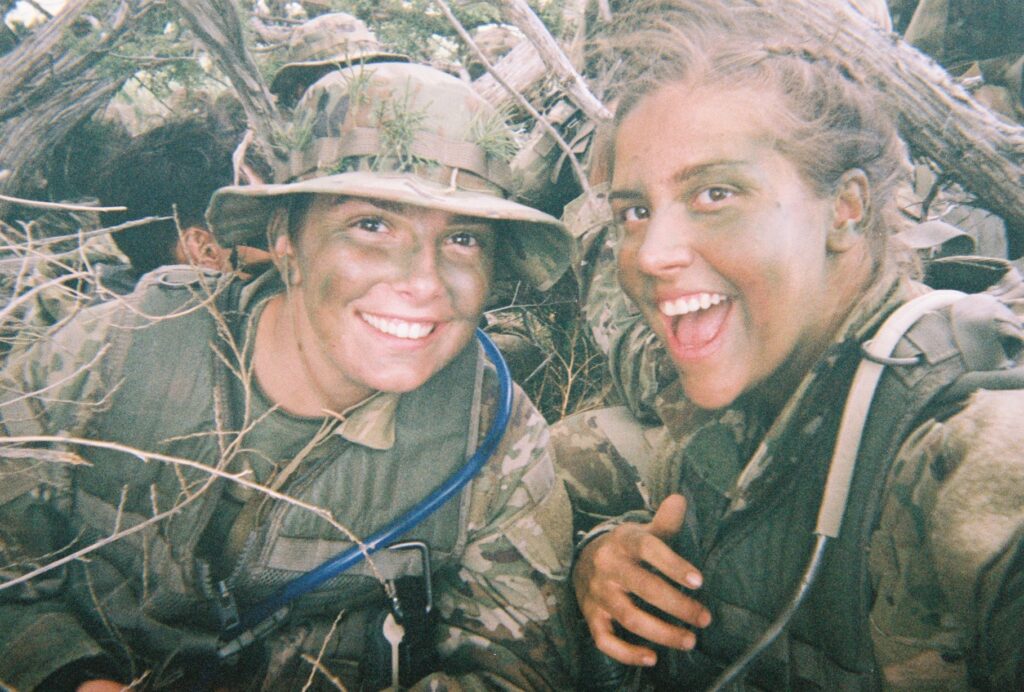
Amina Becirovic, Combat Survival Training (CST)
At CST at the US Air Force Academy in Colorado Springs, Amina Becirovic, a graduate studying math, earned a partial SERE certification (survival, evasion, resistance, escape), which is based on training military personnel how to respond if isolated in a foreign area, i.e., after an aircraft crash.
Becirovic said that the program started with briefings on how to handle hunger and use the equipment on board an aircraft, as well as how to protect top secret information and take precautions such as scrubbing social media before missions to avoid information that can be used against captured personnel.
The program also included a field exercise at an army base about four hours from the academy, that saw cadets stranded in the field for six days with three MREs (meals ready to eat) each. Instructors taught the cadets about how to eat in the most important parts of the day to conserve energy and food, and how to deal with boredom in isolated situations.
“Not only did you have all the experiences there and learning real life situations that SERE specialists have gone through and the importance of everything you learn in training, but you also got to learn more about what it was like for academy cadets,” Becirovic said.
Becirovic said that she got a chance to learn how her perspective as an ROTC cadet differs from the cadets at the Air Force Academy, and that she enjoyed seeing how her perspective has changed over the years.
“I’m really grateful that I’m here, because we have a really good esprit de corps,” Becirovic said. “We’re all proud to be Wolfpack warriors. We’re all proud to be really great leaders and see our growth. As a freshman, I didn’t know anything about the military going into the program. Now, I really pride myself with how far I’ve gotten and what I’ve learned.”
Learn more about NC State Air Force Rotc here.
- Categories:
